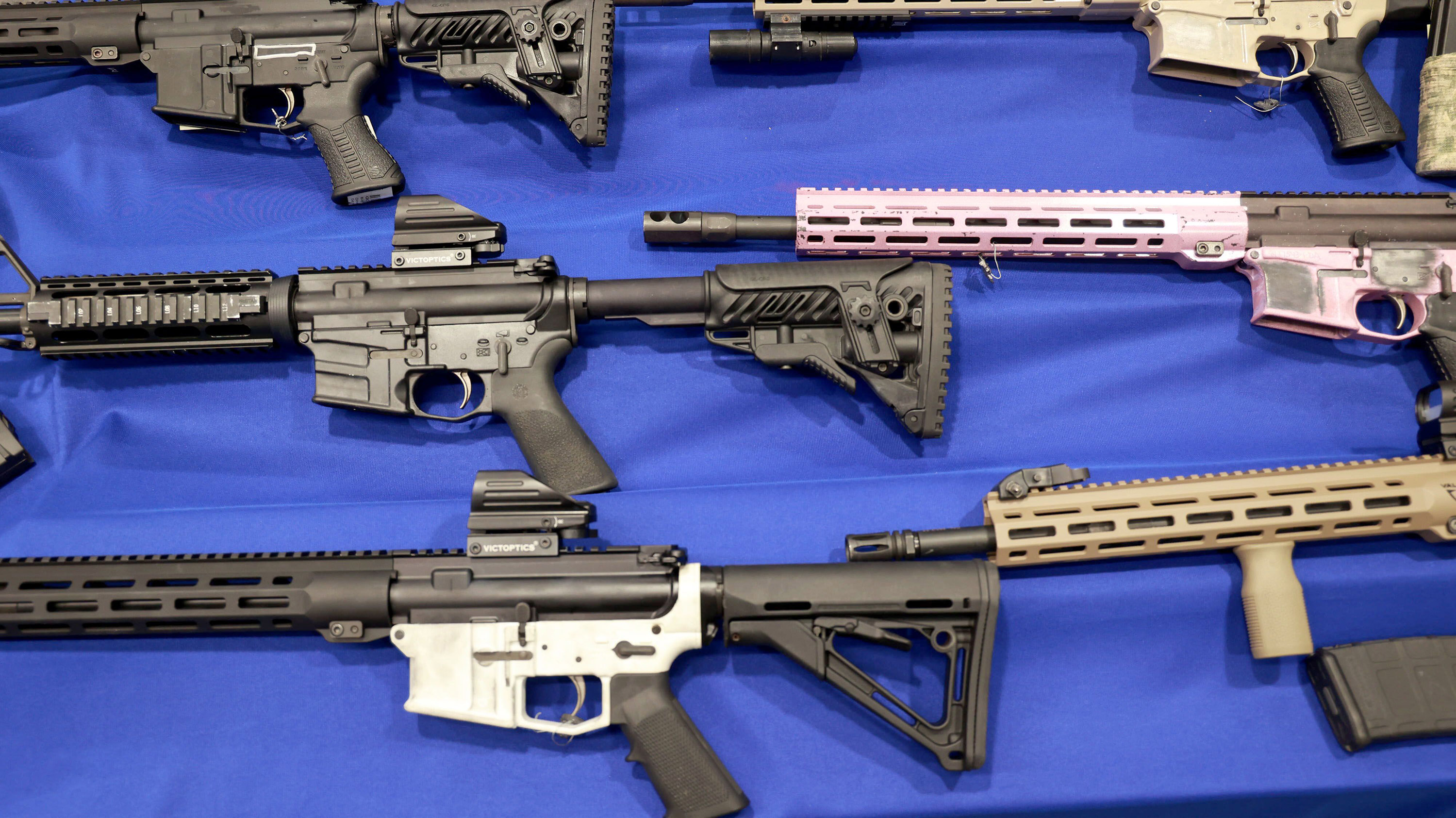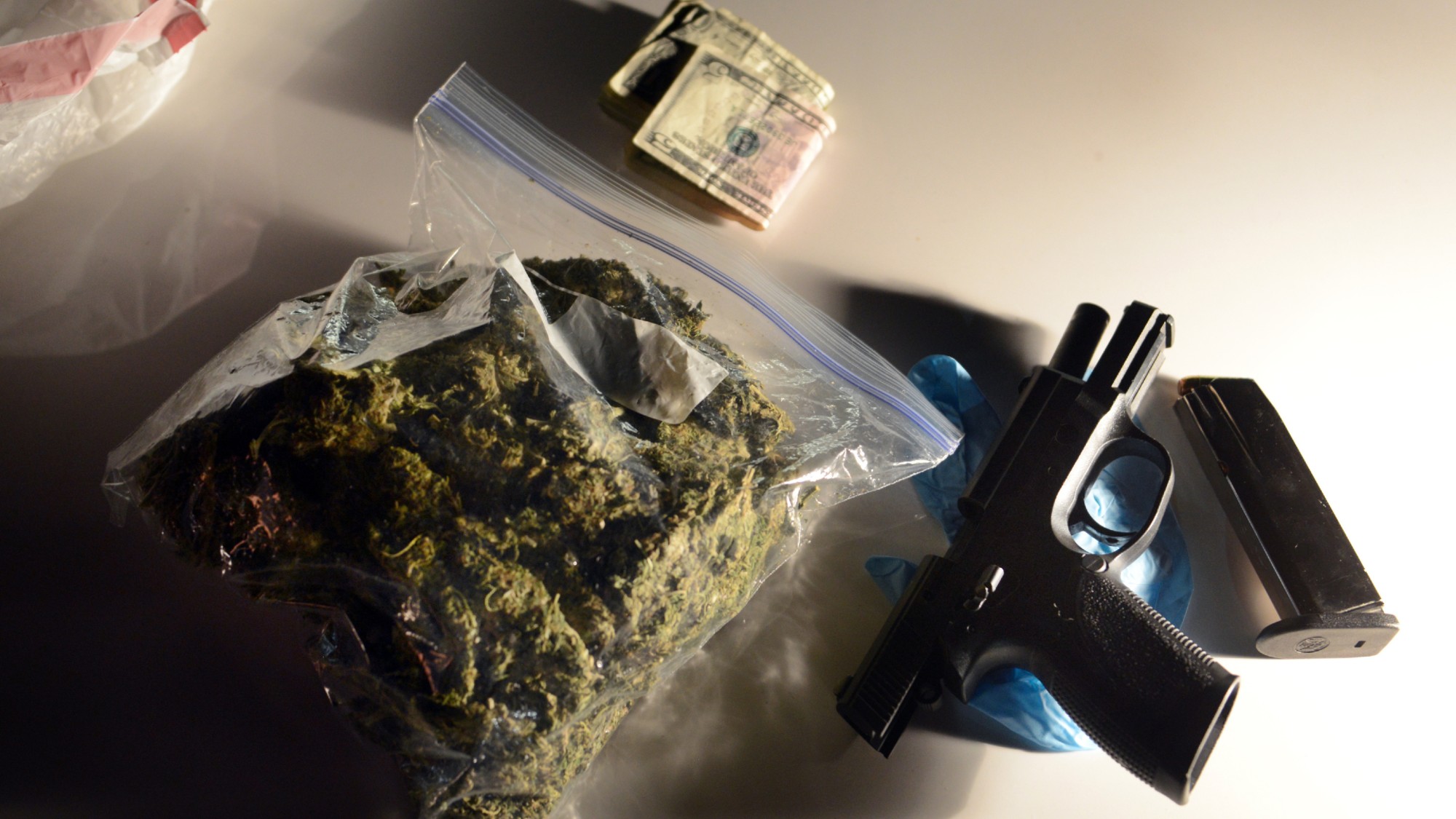Why ghost guns are so easy to make — and so dangerous
Untraceable, DIY firearms are a growing public health and safety hazard


A free daily email with the biggest news stories of the day – and the best features from TheWeek.com
You are now subscribed
Your newsletter sign-up was successful
The shocking broad-daylight shooting of UnitedHealthcare CEO Brian Thompson on Dec. 4 was carried out with a homemade firearm that alleged shooter Luigi Mangione may have created with a 3D printer. The increasing use of such weapons, often called "ghost guns," has raised troubling new questions about the easy availability of homemade firearms and the challenges they pose to both public safety and the ability of law enforcement to solve crimes.
How do ghost guns work?
Ghost guns are "firearms that are privately assembled and untraceable," said NPR. Some are created more or less from scratch using 3D printers, and others are sold as partially assembled "kits" to individuals, to avoid assigning the weapon a traceable serial number. That's because the individual components of a gun "are not subject to any of the federal regulations that govern firearms sales," including background checks, said PBS News.
The use of a ghost gun in Brian Thompson's killing was hardly a new development. Gun kits allowing people to build their own weapons by simply completing a few simple assembly steps at home have been around since the 1980s, and that is still how many people obtain their ghost guns. But the ease of creating homemade firearms increased dramatically with the rise of 3D printing in the 2010s. 3D printing is a "manufacturing process in which material is laid down, layer by layer, to form a three-dimensional object," said PC Mag. 3D printers, therefore, can use that process to "turn digital files containing three-dimensional data" into a variety of items. As costs have fallen over the past 20 years, 3D printing is "no longer a novelty technology," said Steve Lohr at The New Yorker.
The Week
Escape your echo chamber. Get the facts behind the news, plus analysis from multiple perspectives.

Sign up for The Week's Free Newsletters
From our morning news briefing to a weekly Good News Newsletter, get the best of The Week delivered directly to your inbox.
From our morning news briefing to a weekly Good News Newsletter, get the best of The Week delivered directly to your inbox.
In fact, anyone can now buy a small 3D printer for under $200 online and use it to create everything from guns to food. And the "vast majority of people assembling a ghost gun are legally allowed to do so," said CBS Philadelphia. That means that this type of ghost gun is increasingly "falling into the hands of individuals who should not have access to them, including young people and violent extremists," said The Soufan Center.
Why are they a problem?
Guns manufactured in the U.S. or imported from abroad are "legally required to have serial numbers," which are the "critical piece of information that law enforcement agencies use to trace the gun from the manufacturer to the gun dealer to the original buyer," said The New York Times. Without the ability to trace firearms back to individuals, law enforcement is deprived of one of its most significant crime-solving tools at a time when ghost guns are proliferating. "Because of their untraceable nature, we can't say for certain how many ghost guns are in circulation," said the Federation of American Scientists. But between 2017 and 2021, there was a "roughly tenfold increase in the number of ghost guns submitted to the ATF by law enforcement agencies for tracing," said CBS News.
The explosion of ghost guns used in crimes is a problem the Biden administration tried to address in 2022 with a new rule that made it "illegal for businesses to manufacture gun kits without a serial number and for a licensed gun dealer to sell them without a background check," said The Associated Press. Since the Biden administration's rule was enacted, "those trends have reversed" and recoveries of ghost guns have dropped in many major cities and states, said The Trace.
In October, the Supreme Court heard oral arguments in a case challenging the Biden administration's ghost gun regulations. The court "appeared ready to uphold" the rule, said SCOTUSblog, and a ruling is expected sometime in 2025. Ghost guns were not part of the Trump campaign's gun policy agenda, and it is not clear whether the incoming administration will uphold or rescind Biden's rule. But the "growing availability of 3D-printed guns represents a whole new threat" that the Biden administration's rules didn't address, said the Giffords Law Center to Prevent Gun Violence.
A free daily email with the biggest news stories of the day – and the best features from TheWeek.com
David Faris is a professor of political science at Roosevelt University and the author of "It's Time to Fight Dirty: How Democrats Can Build a Lasting Majority in American Politics." He's a frequent contributor to Newsweek and Slate, and his work has appeared in The Washington Post, The New Republic and The Nation, among others.
-
 What are the best investments for beginners?
What are the best investments for beginners?The Explainer Stocks and ETFs and bonds, oh my
-
 What to know before filing your own taxes for the first time
What to know before filing your own taxes for the first timethe explainer Tackle this financial milestone with confidence
-
 The biggest box office flops of the 21st century
The biggest box office flops of the 21st centuryin depth Unnecessary remakes and turgid, expensive CGI-fests highlight this list of these most notorious box-office losers
-
 Trump's ‘weaponization czar’ demoted at DOJ
Trump's ‘weaponization czar’ demoted at DOJSpeed Read Ed Martin lost his title as assistant attorney general
-
 Did Alex Pretti’s killing open a GOP rift on guns?
Did Alex Pretti’s killing open a GOP rift on guns?Talking Points Second Amendment groups push back on the White House narrative
-
 Can anyone stop Donald Trump?
Can anyone stop Donald Trump?Today's Big Question US president ‘no longer cares what anybody thinks’ so how to counter his global strongman stance?
-
 Constitutional rights are at the center of FBI agents’ lawsuit
Constitutional rights are at the center of FBI agents’ lawsuitIn the Spotlight The agents were photographed kneeling during a racial justice protest
-
 Judge issues injunction on DHS use of force
Judge issues injunction on DHS use of forceSpeed Read Agents can only use force under the ‘immediate threat of physical harm’
-
 Judge rules US attorney ‘unlawfully serving’
Judge rules US attorney ‘unlawfully serving’Speed Read Bill Essayli had been serving in the role without Senate confirmation
-
 Why the White House is behind a rare Supreme Court push to limit gun ownership
Why the White House is behind a rare Supreme Court push to limit gun ownershipIN THE SPOTLIGHT Justices are preparing to dive back into the choppy waters of the Second Amendment as the White House pushes to penalize recreational narcotic users
-
 ‘This will support jobs and manufacturing right here in America’
‘This will support jobs and manufacturing right here in America’Instant Opinion Opinion, comment and editorials of the day
